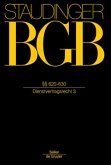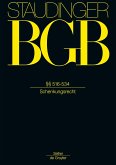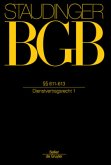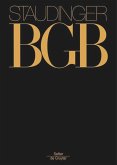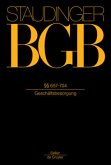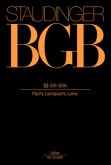The revised edition 2011 of sections 620-630 provides a solid and dogmatic overview of the law regarding the termination of the employment relationship. Principles are explained and selected significant key issues are addressed in detail, such as the notion of prediction as it pertains to behavior-based termination, the crossing of boundaries while engaging in private conduct, and the limitation of entrepreneurial freedom by the protection rights of the employee. An overview of the special termination rights facilitates an introduction to solving employment law cases.
Die Neubearbeitung 2011 der §§ 620-630 bietet Ihnen einen substanzreichen dogmatischen Überblick über das Recht der Beendigung des Arbeitsverhältnisses. Dabei werden die Prinzipien erläutert und ausgewählte wichtige Schlüsselfragen, wie etwa der Prognosegedanke bei der verhaltensbedingten Kündigung, Grenzüberschreitungen bei außerdienstlichem Verhalten oder die Begrenzung der unternehmerischen Freiheit durch die Schutzrechte der Arbeitnehmer vertieft herausgearbeitet. Ein Überblick über die Sonderkündigungsrechte erleichtert den Einstieg in die arbeitsrechtliche Fallbearbeitung.
Hinweis: Dieser Artikel kann nur an eine deutsche Lieferadresse ausgeliefert werden.
Die Neubearbeitung 2011 der §§ 620-630 bietet Ihnen einen substanzreichen dogmatischen Überblick über das Recht der Beendigung des Arbeitsverhältnisses. Dabei werden die Prinzipien erläutert und ausgewählte wichtige Schlüsselfragen, wie etwa der Prognosegedanke bei der verhaltensbedingten Kündigung, Grenzüberschreitungen bei außerdienstlichem Verhalten oder die Begrenzung der unternehmerischen Freiheit durch die Schutzrechte der Arbeitnehmer vertieft herausgearbeitet. Ein Überblick über die Sonderkündigungsrechte erleichtert den Einstieg in die arbeitsrechtliche Fallbearbeitung.
Hinweis: Dieser Artikel kann nur an eine deutsche Lieferadresse ausgeliefert werden.


